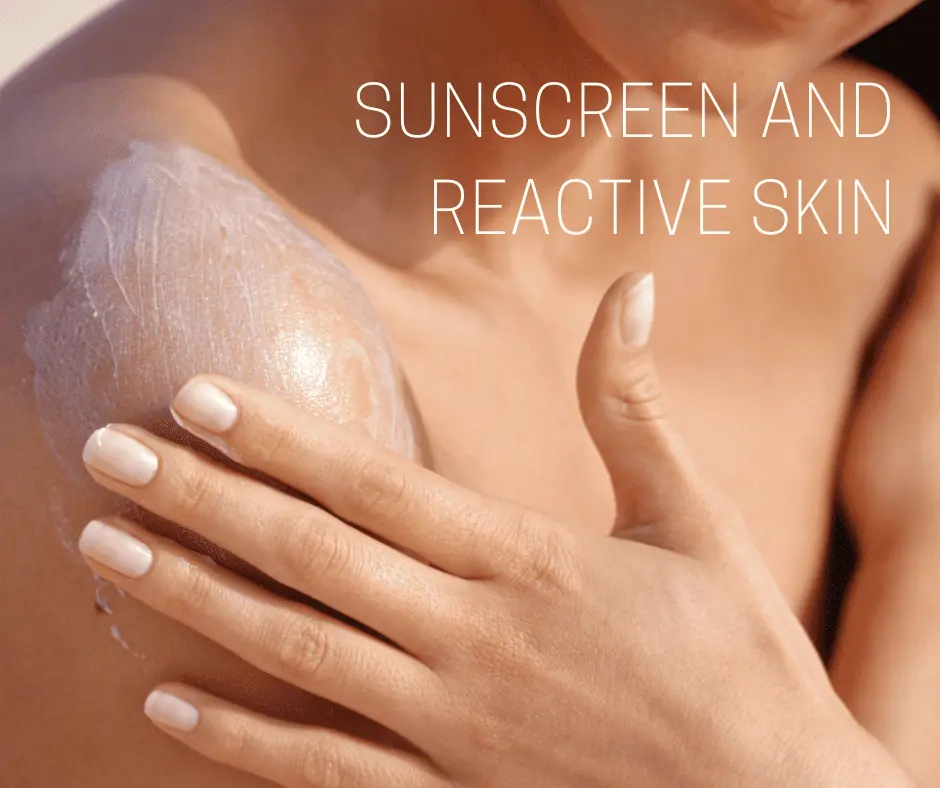
Ever find yourself with watery eyes and a stinging sensation mere moments after applying your sunscreen?
Whilst you may be putting in the time to give your skin the care you feel it deserves, it sometimes feels like it isn’t quite so thankful. The unfortunate reality is that for those of us struggling with a more delicate and easily irritated skin type, finding the right sunscreen can not only feel like a challenge, but it can also leave our skin feeling a little worse for wear. Fortunately, over time the understanding behind how best to protect reactive skin from the sun has grown deeper, so you can enjoy golden hour without any nasty side effects.
What To Look For
Finding the right sunscreen is crucial for all of us – after all, it does a lot more than just prevent us from getting burnt. Sunscreen acts as a barrier between the skin and the skin damaging UVA and UVB rays the sun emits. These rays can cause symptoms anywhere from sun spots and premature aging to skin cancer. So for skin types more prone to irritation and damage, there are a few key things to look for when choosing the right sunscreen for you – and just as importantly, a few things to avoid.
1. Mineral vs Chemical Sunscreen
When first looking at the right sunscreen for reactive skin, we need to address the different types of sunscreen on the market. There are 3 different kinds; chemical sunscreen, mineral sunscreen – and finally, a hybrid of the both. We recommend opting for a mineral sunscreen over chemical for all skin types, but feel this is even more important for those dealing with sensitivity. This is because chemical sunscreens include many ingredients which, whilst they might fight off UV rays, they can have some nasty consequences nonetheless. Ingredients like Avobenzone, Oxybenzone, Homosalate and Octocrylene (to name a few!) are active ingredients often found in chemical sunscreens that can be very damaging. According to FDA ‘Oxybenzone (known as a hormone disruptor) have also been found in breastmilk. This indicates that the risks of these chemicals entering the bloodstream extend beyond just the sunscreen wearer.’ Not only are many of these ingredients known hormone disrupters, they can also be very harmful to our aquatic ecosystems. In fact, research has found that Oxybenzone and Octinoxate specifically are harmful to fish, coral reefs and sea urchins. Which is why in 2018 Hawaii became the first state to ban the sale of sunscreens which have either Oxybenzone or Octinoxate in their ingredients due to the negative impact it can have on coral reefs, with several other tourist destinations following in these footsteps. Thankfully, mineral sunscreens offer skin protection without the negative impact on our bodies or aquatic life. Most mineral sunscreens opt for Zinc Oxide and Titanium Dioxide as their source of natural active ingredients to filter out the UV rays and keep your skin happy and healthy. And the result in the case of those with sensitive skin is a significant reduction in the likelihood of irritation or allergic reactions, as well as a much faster absorbing (and therefore quicker working) sunscreen. We recommend anything that is SPF30 and above to ensure the skin gets the most effective protection it deserves.
2. Parabens and Phthalates (the pesky duo we need to steer clear of!)
Now that we’ve addressed which kind of active ingredients we want to avoid I’m sunscreen, it’s important to also address the other ingredients which can end up being overlooked. These synthetic chemicals are definitely doing more harm than good for the body, and bring basically no benefits to the table. For instance, Parabens are a preservative used to increase the shelf life of many products, but what we aren’t often told is that they can cause allergic reactions, skin irritation such as rashes and are also a known endocrine disruptor, meaning our hormones won’t be too happy. Phthalates are usually used as a binding ingredient to help fragrance bind to a product. Unfortunately, they can do a lot more than just that. Phthalates have been found to be linked to asthma, kidney issues, reproductive problems and many more concerning conditions. Avoiding these trigger ingredients can save your skin and body from a world of worry.
3. Skincare Beyond Sunscreen
Having a good sunscreen is crucial, but introducing other sun protecting products can have your skin flourishing, and sometimes it can come from places you weren’t looking in. Our Vemel Advanced Protective Serum offers a wealth of benefits, from locking in hydration to stimulating collagen production – but it can work wonderfully alongside your sunscreen with its UVA and UVB fighting Micro and Macro Algae. This antioxidant rich algae helps absorb UV rays and therefore reduce sun damage on the skin. And whilst it does not replace your sunscreen, it offers that added barrier so you and your skin can rest easy. We also recommend our Wonder Balm post sun as it works wonderfully to soothe our irritated skin that is calling out for a little extra TLC. So whether it’s a little sun burn, Eczema or general irritation, Wonder Balm is that little pot of goodness that keeps things calm, especially helpful for those of us on the sensitive side.
So whilst there’s no debate that sunscreen can do our skin the world of good to fight off the harsh impact the sun can have, whether that’s premature aging or skin cancer, finding the right sunscreen and one that works for your sensitivity rather than against it is crucial and making a few changes can be all we need to have the healthiest and happiest skin.